Diana and David Vos can point to several defining moments in their 43 years together, but the one with the greatest impact is the day in May 2017 when a stroke literally knocked Diana off her feet.
The two were working in the yard of their ranch-style home in the woods when a hemorrhage struck the right side of Diana’s brain.
“She walked toward me and said, ‘Dave, I can’t stand up,’ and she just keeled over and kind of crumpled on the left side,” he said.
Since that spring day, nothing has been quite the same for the retired couple, who live in Cannon Township, Michigan, with their aging Doberman, Nixx.
That’s not to say Diana, 71, hasn’t made tremendous progress. But hers isn’t a story of fast and full recovery. It’s not an account of a stroke patient walking out of the hospital unimpaired.
Diana’s story is one of extensive rehabilitation, constant perseverance and a spouse’s dedicated caregiving.
It’s a testament to love and hard work.
Slow, steady progress
Diana spent the first three days post-stroke in the comprehensive stroke center at Spectrum Health Butterworth Hospital, where she was treated with medications to control swelling and pressure in her brain.
Her life hung in the balance.
She pulled through and the couple’s focus quickly turned to rehab—physical, occupational, recreational and speech therapy to address severe deficits on the left side of her body. They chose the Inpatient Rehabilitation Center at Spectrum Health Blodgett Hospital.
When Diana first arrived there, she was completely dependent on others.
“I had to have two people getting me out of the wheelchair, to a bed, to a chair, to the bathroom,” she said.
She and her therapists worked hard—four hours a day, six days a week for nearly a month. They made heavy use of the rehab gym. They worked on her speech and swallowing and memory. David came every day to participate.
It was painful, tedious work, but by the time she went home, Diana could walk nearly 200 steps with assistance, David said. Her speech and swallowing had greatly improved, too.
“It was a lot about bringing attention to the left side of her body, of her world, being able to care for herself again, being able to help her husband care for her,” recalled Adrienne Veenstra, Diana’s recreation therapist.
“We utilized her love of birdwatching to say, ‘OK, as we’re going by an image (in the hallway), what bird are we passing right now?’” Veenstra said. “And we’d cue her to turn, to turn, to turn—‘Oh, it’s the warbler that’s on my left.’”
Living at home today, Diana has a clear view through her front window to the bird feeders in the yard. She speaks clearly, eats normally and has recovered her full field of vision.
It’s the difficulties with dexterity and mobility that bring her the most frustration.
“That’s what’s so bad, yeah,” Diana said. “Nothing feels normal. I can’t move my feet unless I’m watching my feet.”
She fears losing her balance.
Though her inclination is to use a wheelchair, David, now her full-time caregiver, uses a gait belt to help her walk with a cane inside the house.
He doesn’t want her to lose the headway she’s made—first with inpatient rehab, then with in-home therapy through Spectrum Health At Home and then during eight months of outpatient physical therapy at the Spectrum Health Integrated Care Campus.
“It’s been a grind—really slow progress, especially after the first three or four months, which is what they told us would happen,” he said. “But still, her left hand—now she can open it up herself. And a couple months ago she couldn’t do that.”
After taking a yearlong break from rehab, Diana recently returned to outpatient physical therapy as a way to maintain her current levels of activity and see whether she can make further gains.
Parkinson’s plays a role
A complicating factor for Diana is Parkinson’s disease, which doctors had diagnosed in 2016, about a year before her stroke and not long after retiring from her job at an animal hospital.
Though there’s no causal link between Parkinson’s disease and stroke, the presence of Parkinson’s has likely hampered her stroke recovery, according to Muhib Khan, MD, director of the Spectrum Health Stroke Center.
“Having another neurological disorder in addition to having a stroke always makes it slightly more difficult for recovery to happen,” Dr. Khan said.
From a therapist’s perspective, Veenstra agreed.
“In stroke recovery when you see that, slowly but surely, that connection is being rebuilt between the arm or the leg and the brain, it’s going to be slower with Parkinson’s, because that connection was already starting to degrade … before the stroke,” she said.
Stroke Camp
David is a glass-half-full kind of guy. He regularly reminds his wife of the gains she’s made and encourages her to keep exercising, to do as much as she can.
But optimists need encouragement, too. That’s where the Spectrum Health Stroke Camp and stroke support groups come into play.
The medical community tends to focus on stroke survivors, but Spectrum Health is taking steps to also support caregivers, Dr. Khan said.
“We cannot continue to ignore the well-being of the caregiver, because the caregiver is a key player in ensuring the well-being of our patients,” the doctor said.
“There is patient depression, but there is caregiver depression as well that happens over a period of time. There’s patient fatigue and then there’s caregiver fatigue. There’s compassion fatigue.”
Stroke Camp addresses these issues. The camp is a full-day annual event for stroke survivors and their caregivers that offers information, strategies, resources, coping mechanisms and moral support to patients and their family members or friends. It’s held each September at Frederik Meijer Gardens & Sculpture Park.
Stroke recovery isn’t only about strength and motor problems, Dr. Khan explained. It’s about finding ways to live a meaningful life despite both the obvious physical deficits and the changes in mood, behavior and relationships that often arise for survivors.
Diana and David have attended Stroke Camp twice and found it helpful and heartening.
“I liked it because they had special sessions for caregivers, so you could kind of relate to each other and talk about what was the problem maybe or what helped in different situations,” David said.
“It was nice realizing that you weren’t alone.”
Diana appreciated the sessions for survivors, such as adaptive yoga and tai chi, which showed participants how to do these activities while sitting down or using supports.
Dr. Khan hopes that through the Stroke Camp and a new caregiver support group, Spectrum Health will enhance its continuum of care for the stroke community.
“In our world, a healthy caregiver is as important as a healthy stroke survivor,” he said. “In providing support to (David), we’re hopeful that that is an indirect support to Diana as well.”
The goal is to provide wide-ranging ways to help Diana and David—and other survivors and caregivers like them—to keep fighting the good fight.
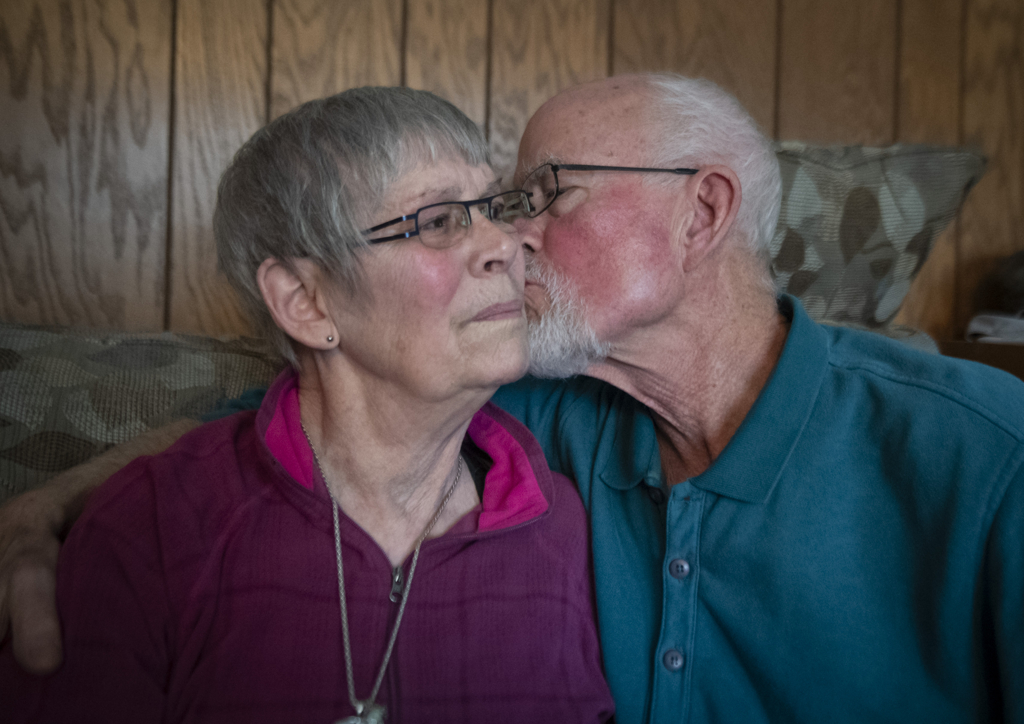
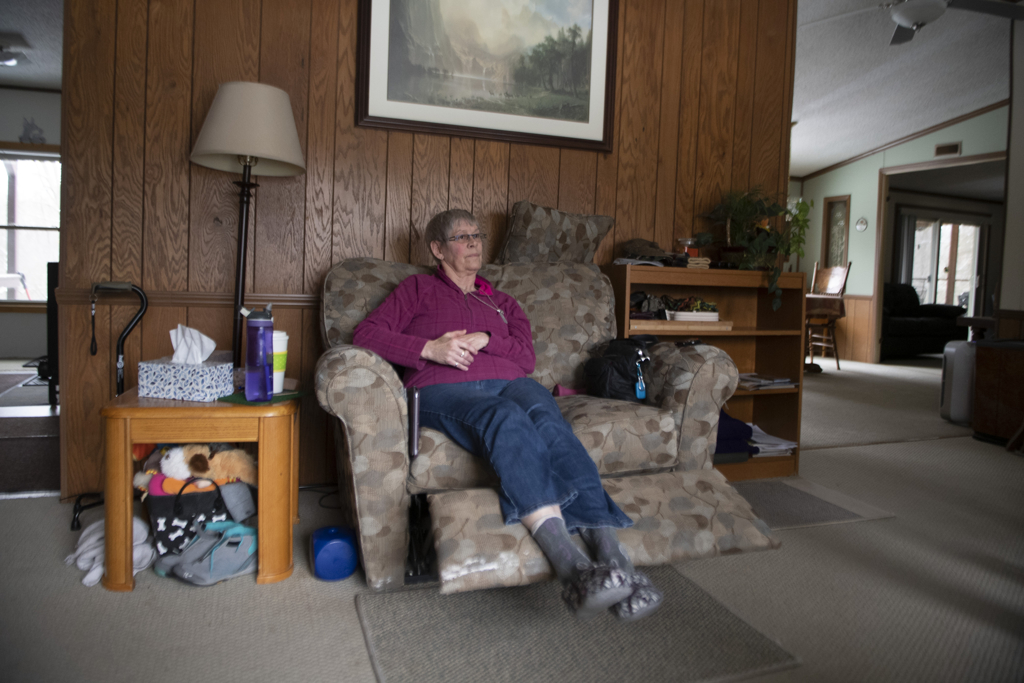
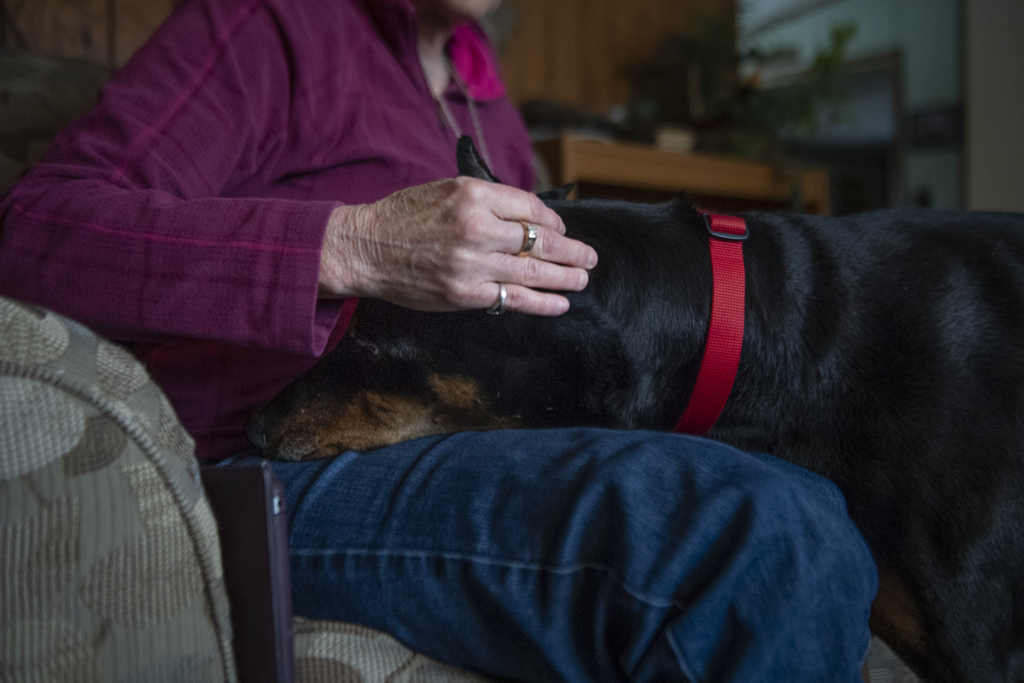
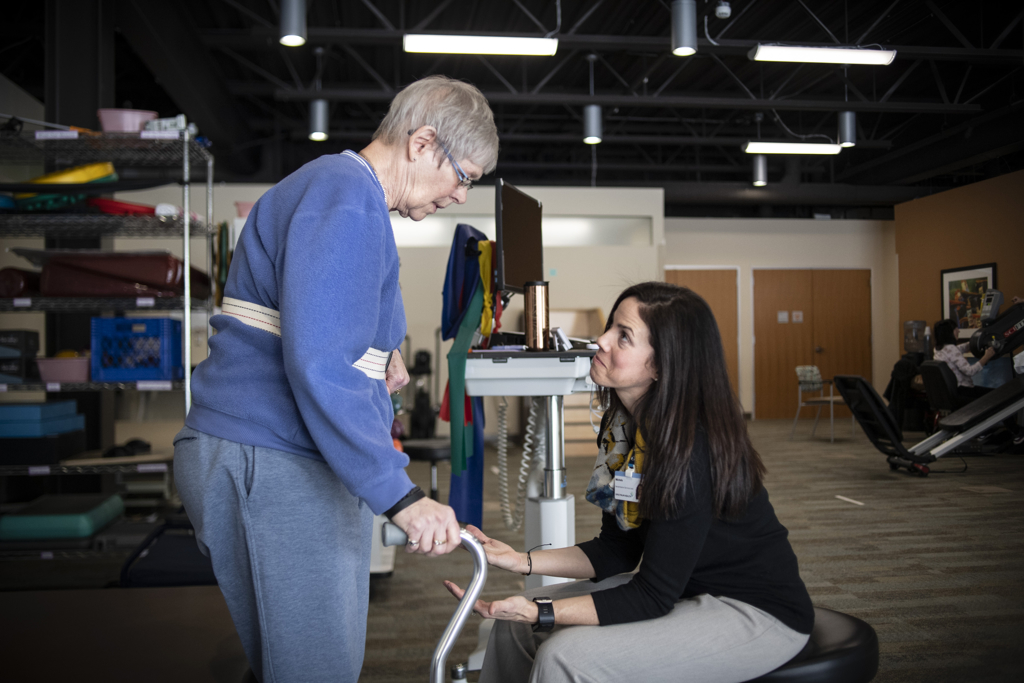
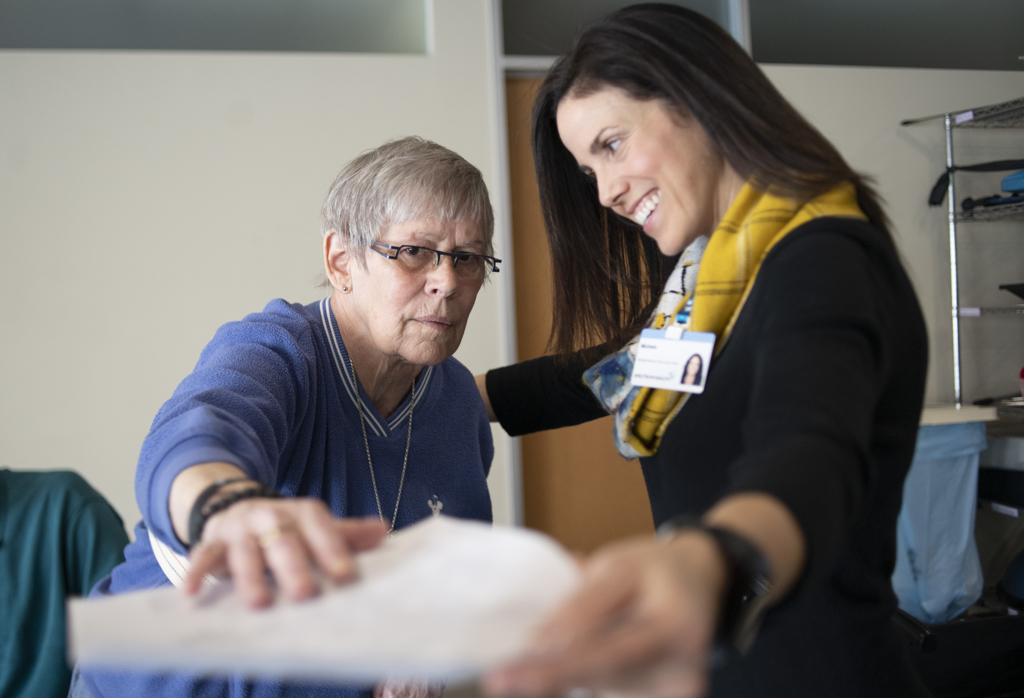
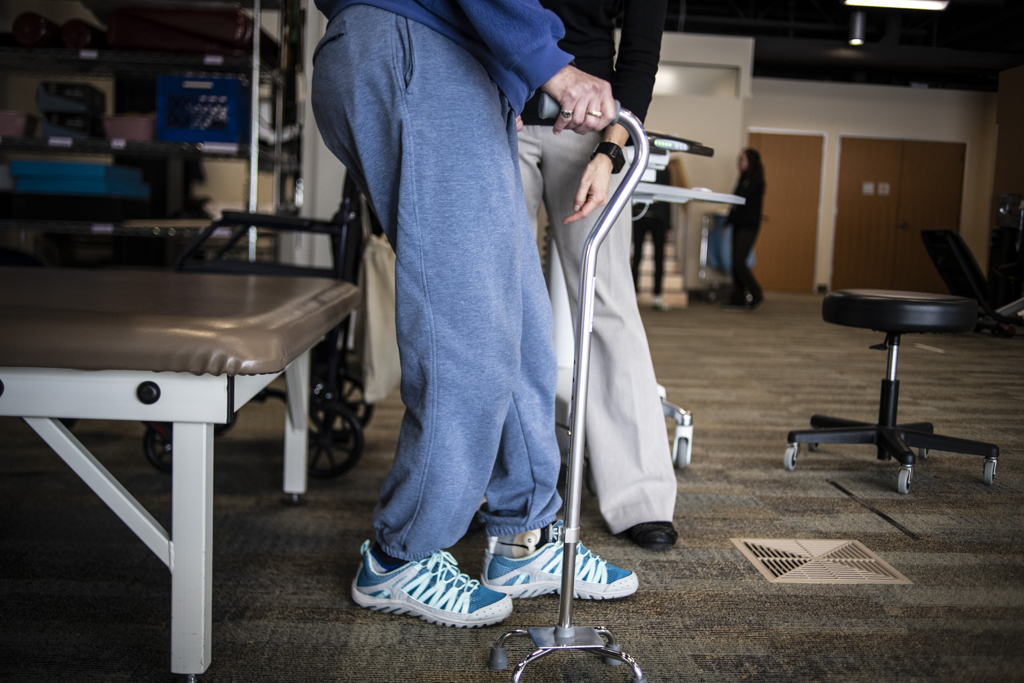
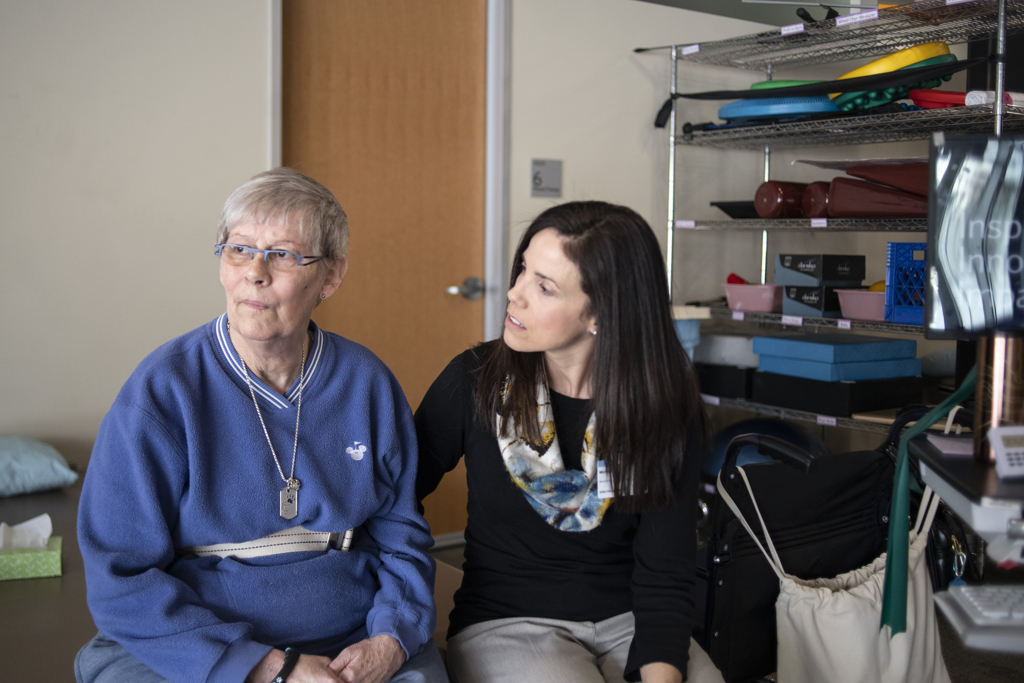
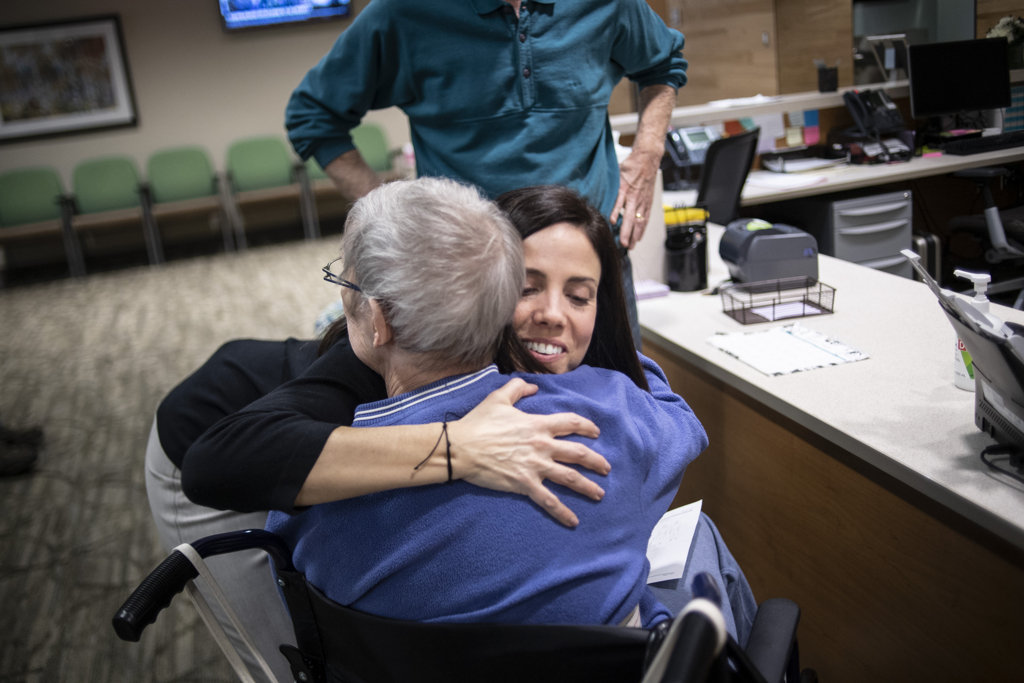
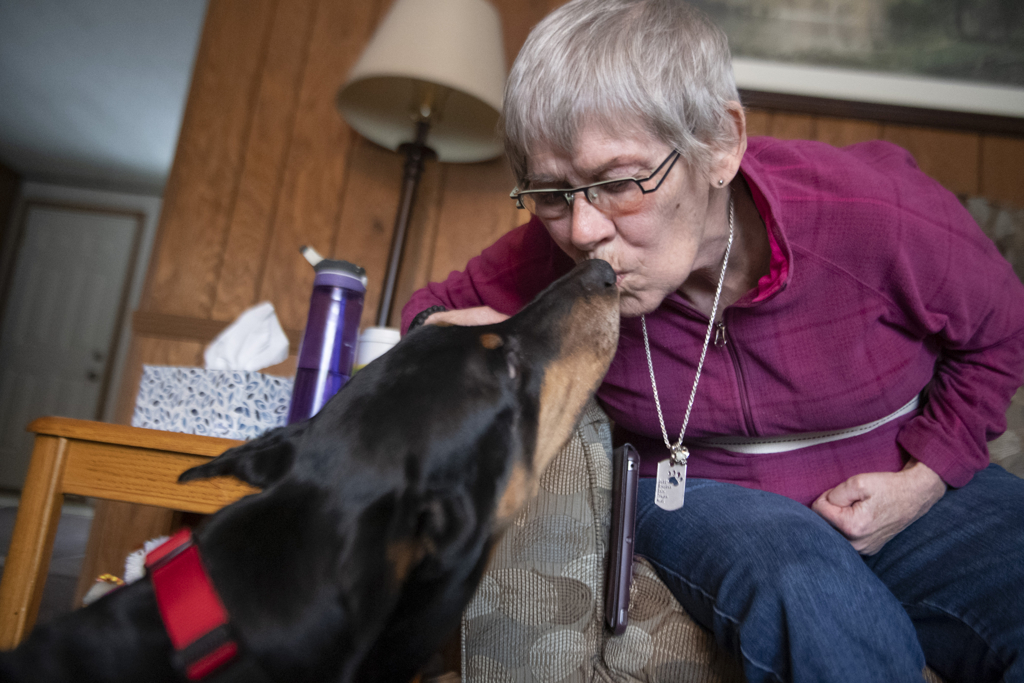
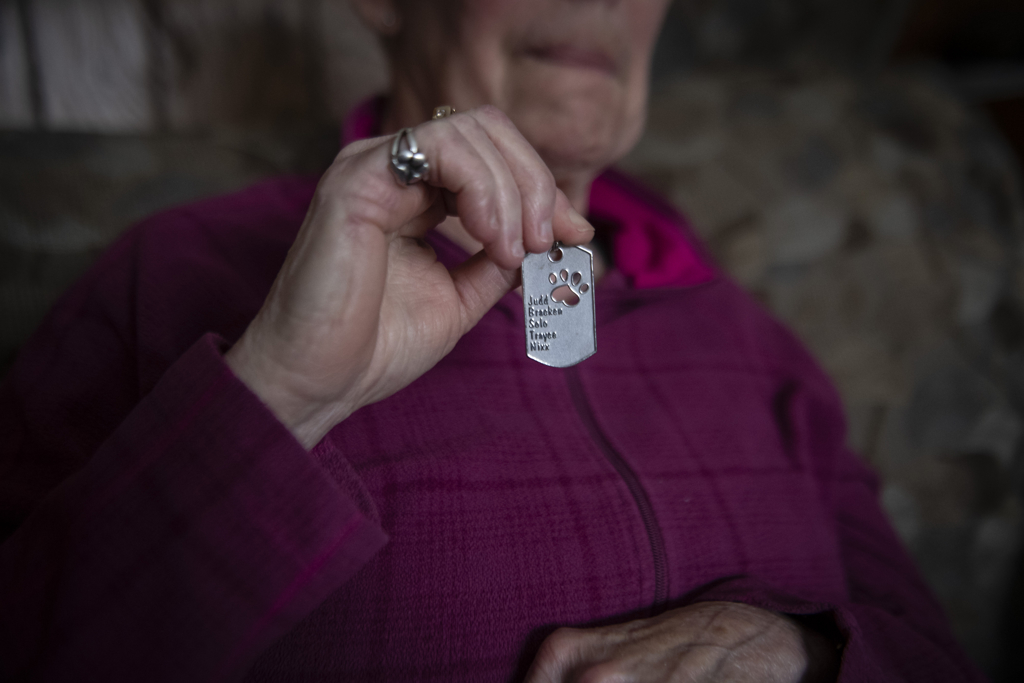
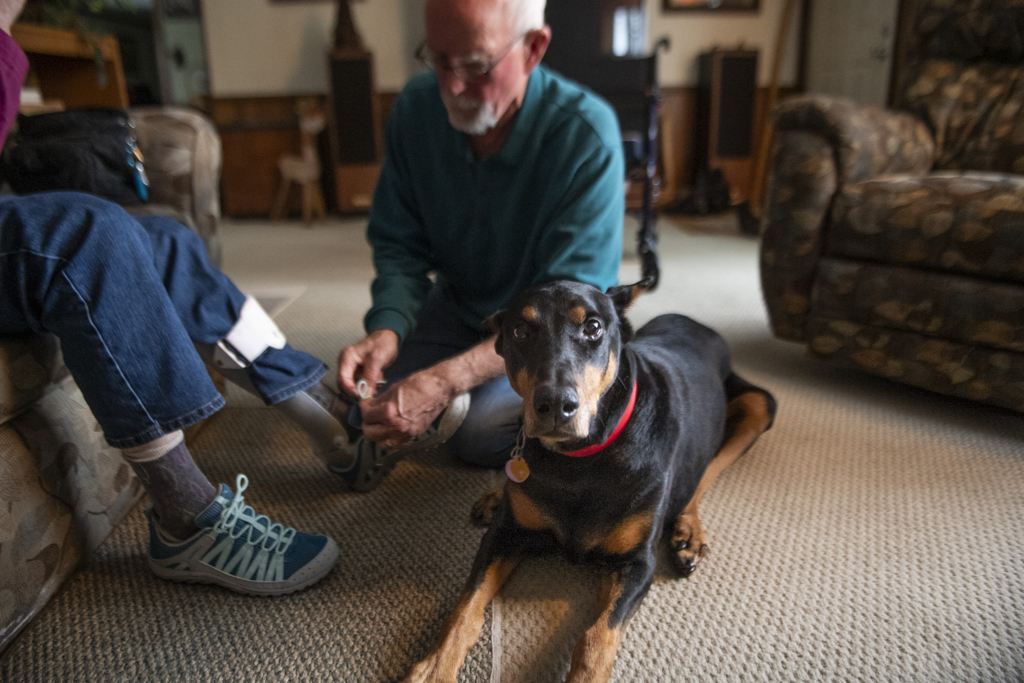
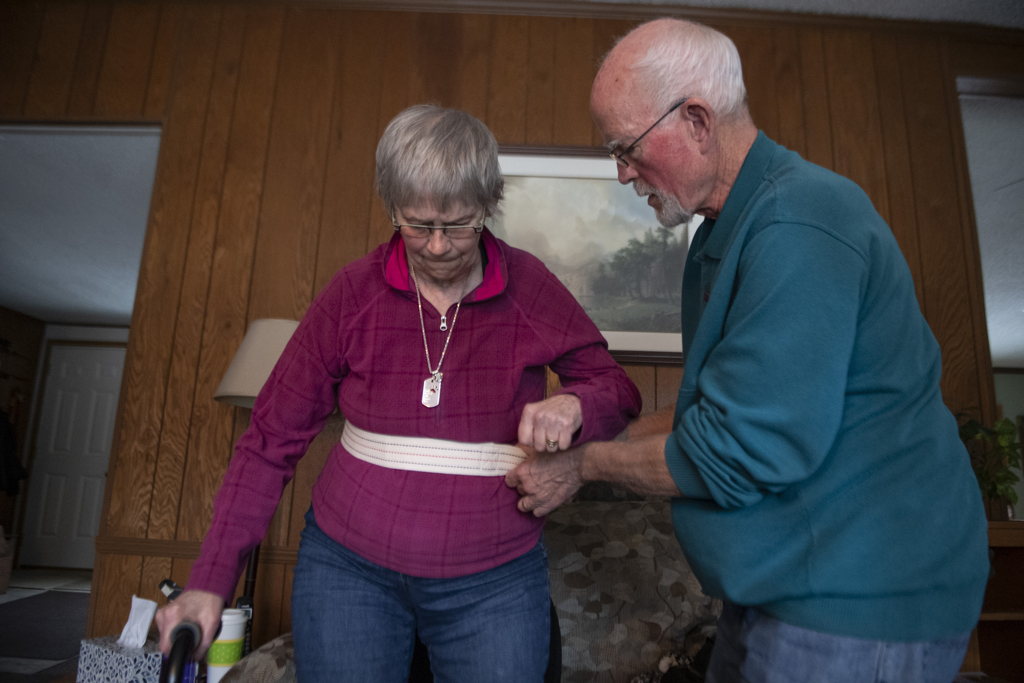
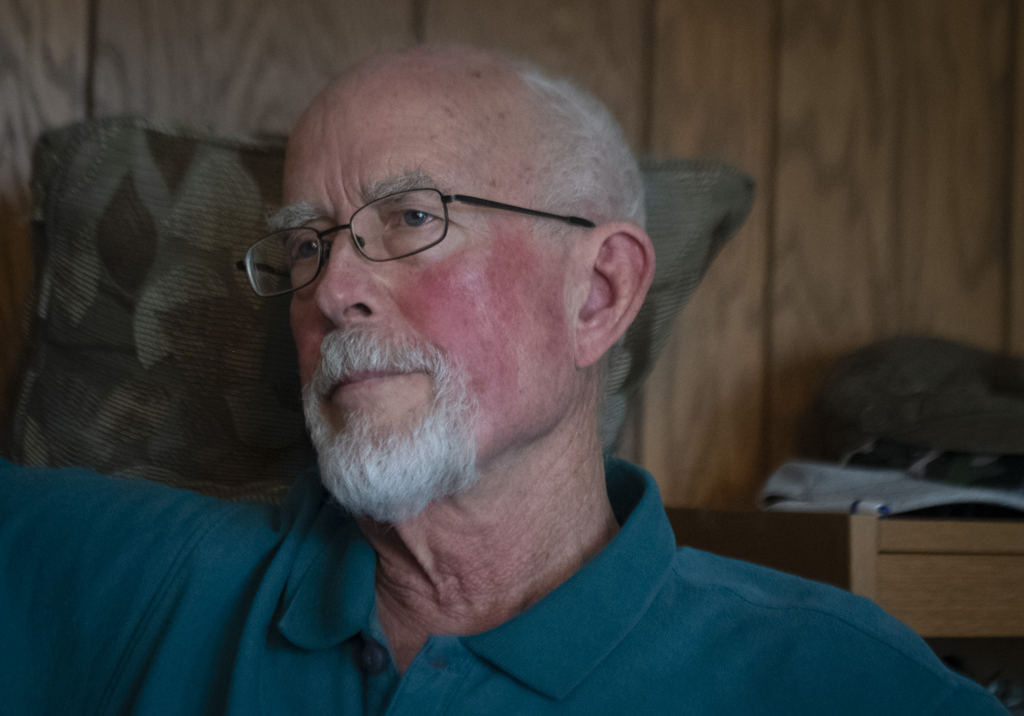
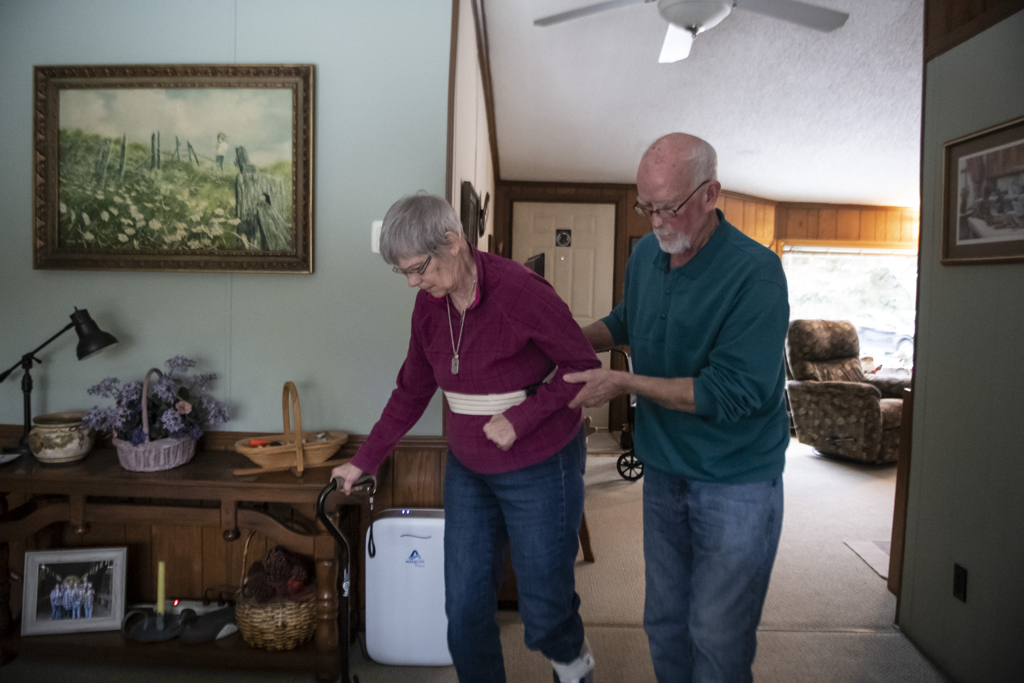
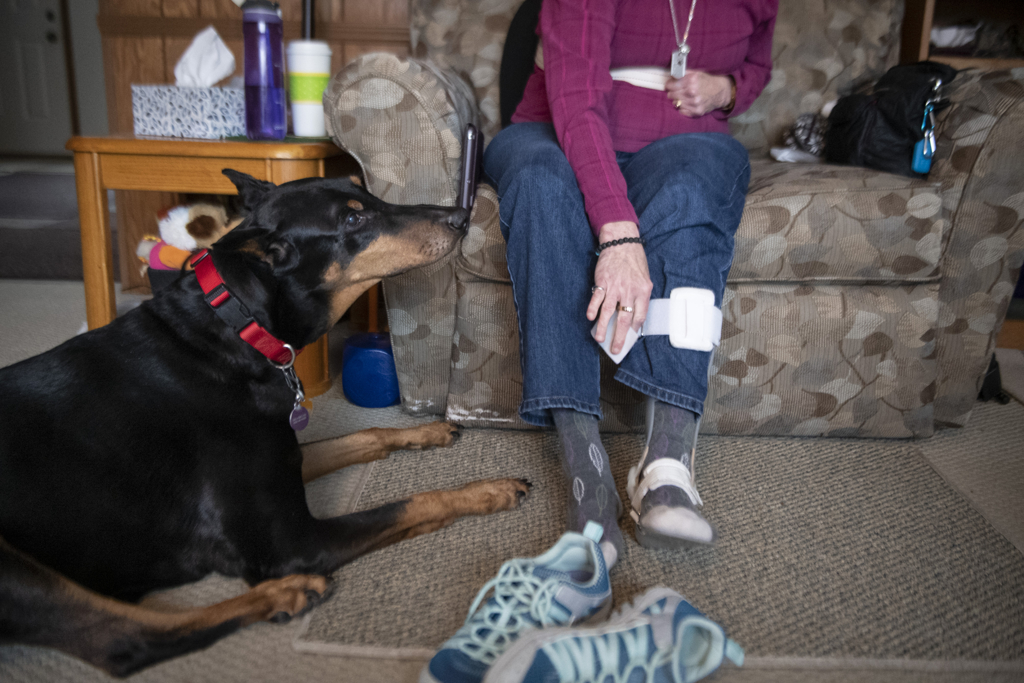
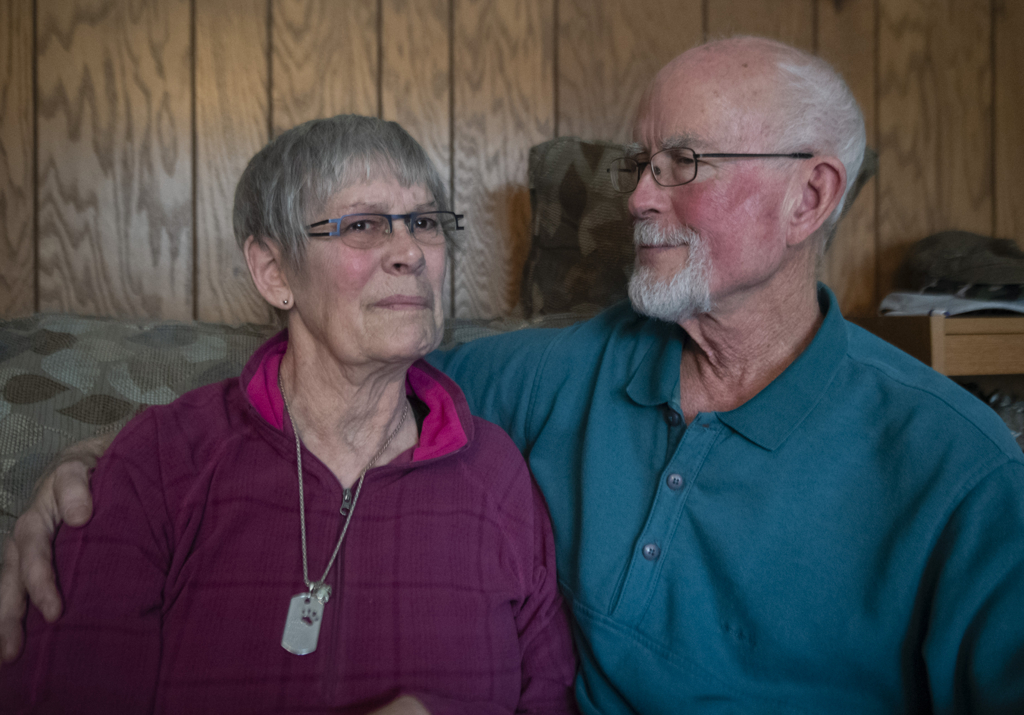
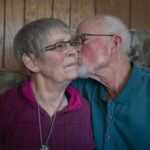
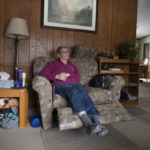
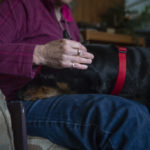
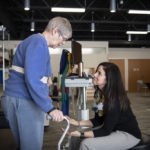
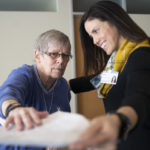
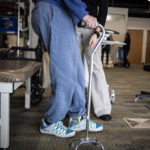
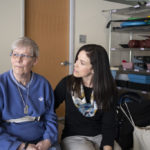









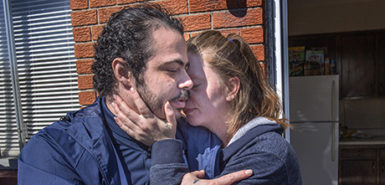 /a>
/a>
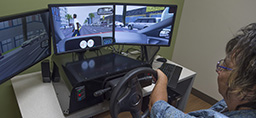 /a>
/a>
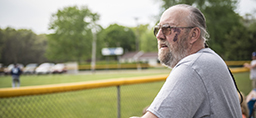 /a>
/a>